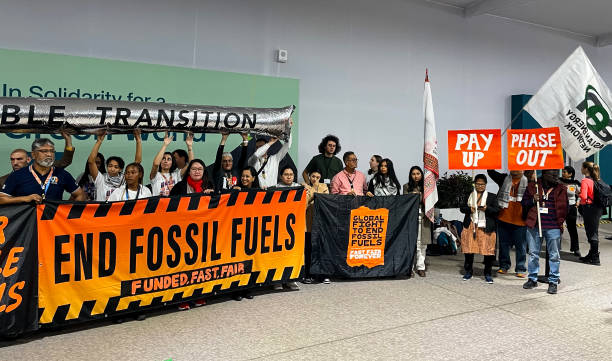Over 100 heads of state and government are converging in Baku, Azerbaijan, for the COP29 climate summit.
This event, held in a city steeped in oil history, offers a stark visual of the global fossil fuel dilemma.
The city’s skyline is defined by oil rigs and gas flares, emblematic of the country’s dependence on fossil fuel exports.
Azerbaijan, which relies heavily on oil for its economy, highlights the central issue that delegates face: whether the world continues to burn fossil fuels for profit or shifts towards sustainable energy practices.
While leaders from various nations will discuss the future of climate action, the summit is particularly significant following the US election, where the new administration’s shift back towards fossil fuel support could hinder global climate progress.
This shift presents a major challenge, especially as the world continues to face extreme weather events fueled by rising temperatures.

Last year was the hottest on record, and the impacts of climate change—hurricanes, floods, and droughts—are becoming increasingly severe.
COP29, however, brings renewed focus on one critical issue: funding.
Developing countries, particularly those in Africa and small island nations, are struggling to access climate finance necessary to adapt to climate change and reduce emissions.
Experts estimate that $3.5 trillion annually will be needed to transform global energy systems by 2050.
With wealthier countries still reluctant to fully commit, alternative funding models, such as taxes on high-carbon activities and the redirection of fossil fuel subsidies, are being explored.
While challenges remain, particularly with the rise of climate skepticism and political pushback from fossil fuel-rich nations, COP29’s outcome could help shift the global trajectory toward a cleaner, more sustainable future.
The stakes are high, and only collective action can stave off the worst impacts of climate breakdown.

